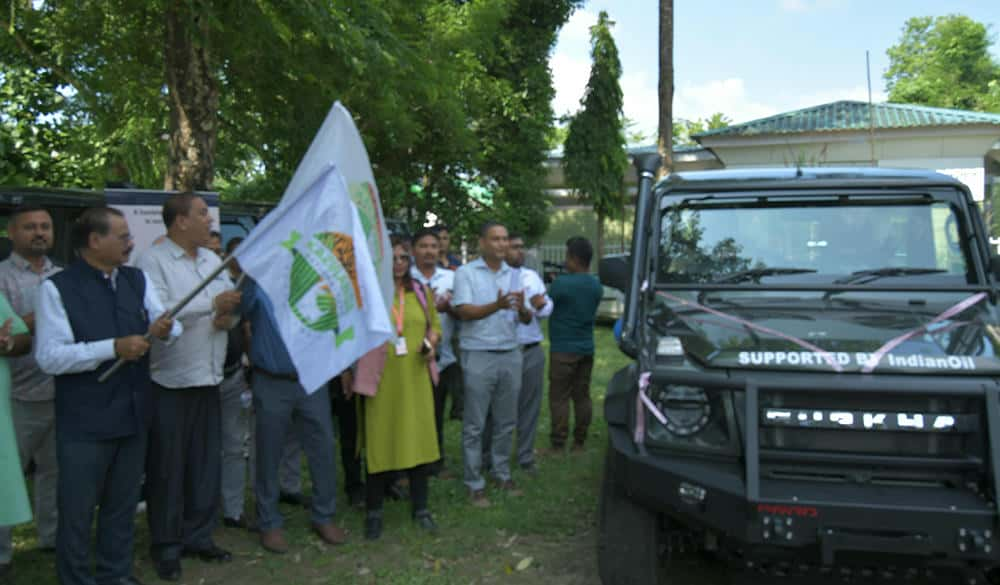Indian Oil boosts Kaziranga’s wildlife patrol fleet; students dive into conservation at nature orientation camp

Indian Oil Corporation Limited (IOCL), as part of its Corporate Social Responsibility (CSR) efforts, handed over six Force Gurkha off-road patrol vehicles to Kaziranga National Park and Tiger Reserve on Friday, enhancing the park’s frontline protection and conservation operations.
The vehicle handover ceremony, held at the Kohora Convention Centre in Kaziranga, was flagged off by Assam Environment and Forest Minister Chandra Mohan Patowary. He was joined by Lok Sabha MP Kamakhya Tasa, IOCL Executive Director Rajesh Nambiar, and Dr. Sonali Ghosh, Field Director of Kaziranga National Park. The rugged vehicles, built for challenging terrain, are expected to significantly boost the mobility and response capabilities of the park’s forest staff.
This initiative aligns with Indian Oil’s “Swachh Parivesh” campaign and reflects the company’s broader commitment to environmental conservation and support for India’s ecological heritage.
In parallel, Kaziranga also welcomed a new generation of conservationists through the 17th edition of the Nature Orientation Initiative (NOI), a three-day summer nature camp being held from July 10 to 12. Hosted by the Eastern Assam Wildlife Division, the camp has brought together 49 school students (Classes VIII–XII) and over 50 college interns from institutions including JDSG College and CNB College in Bokakhat, Lovely Professional University in Punjab, and Fergusson College in Pune.
The NOI camp, initiated in 2007, is a flagship environmental education program organized by Kaziranga National Park and the Assam Science Technology and Environment Council (ASTEC), in collaboration with leading conservation organizations such as Aaranyak, WWF-India, WTI, TSAFI, and The Corbett Foundation.
Held at Wildgrass Resort in Kaziranga, the camp offers an immersive and hands-on conservation learning experience. Participants engage in sessions on wildlife rescue and rehabilitation, birdwatching ethics, forest behaviour, and Kaziranga’s Big Six species. Field visits to Panbari Reserve Forest and the Centre for Wildlife Rehabilitation and Conservation (CWRC) provide real-world exposure to conservation work.
The programme also includes yoga, birding trails, stargazing, and conservation-themed games, alongside expert-led discussions on human-wildlife conflict, ecological roles of insects and reptiles, and career paths in wildlife conservation. The camp will conclude with a campfire evening and certificate distribution.





Leave a Reply